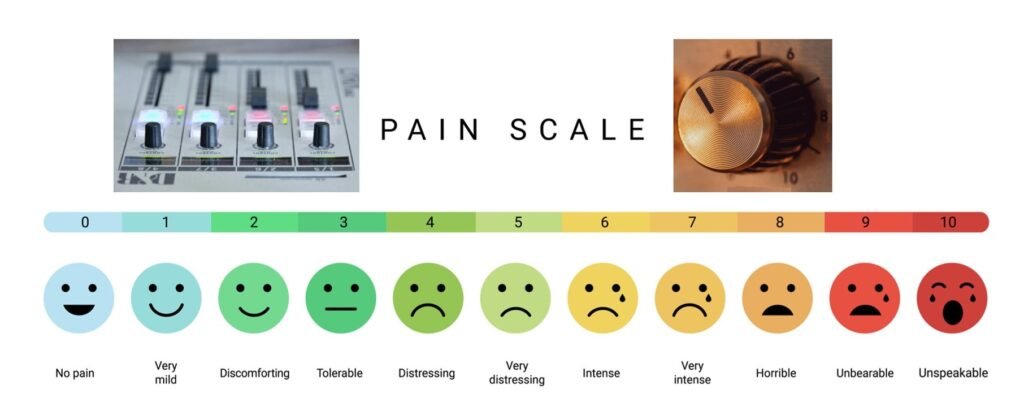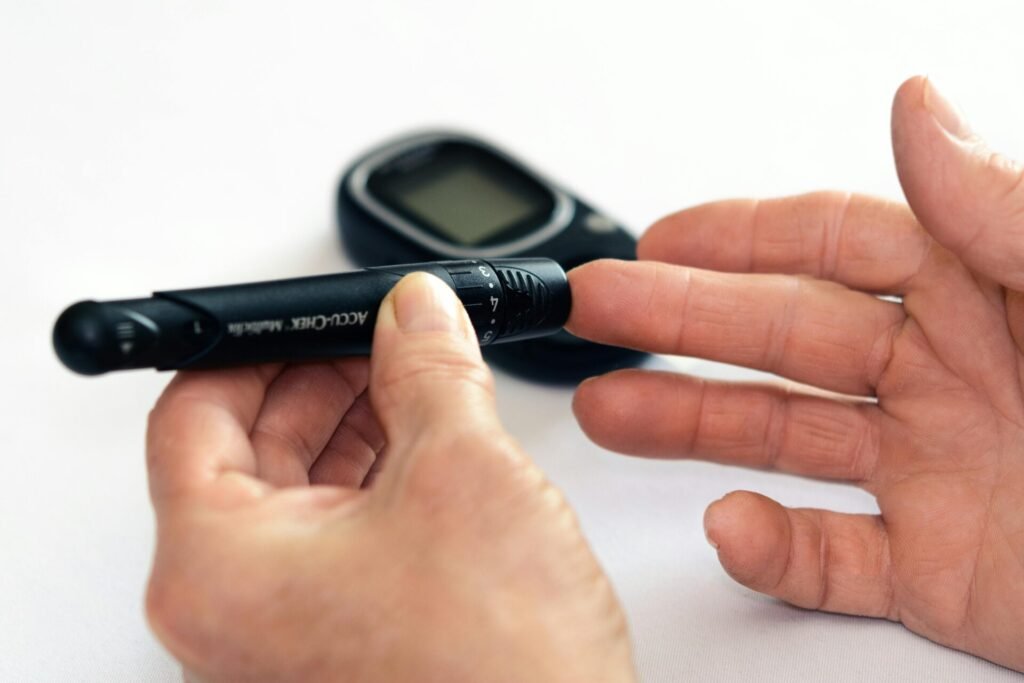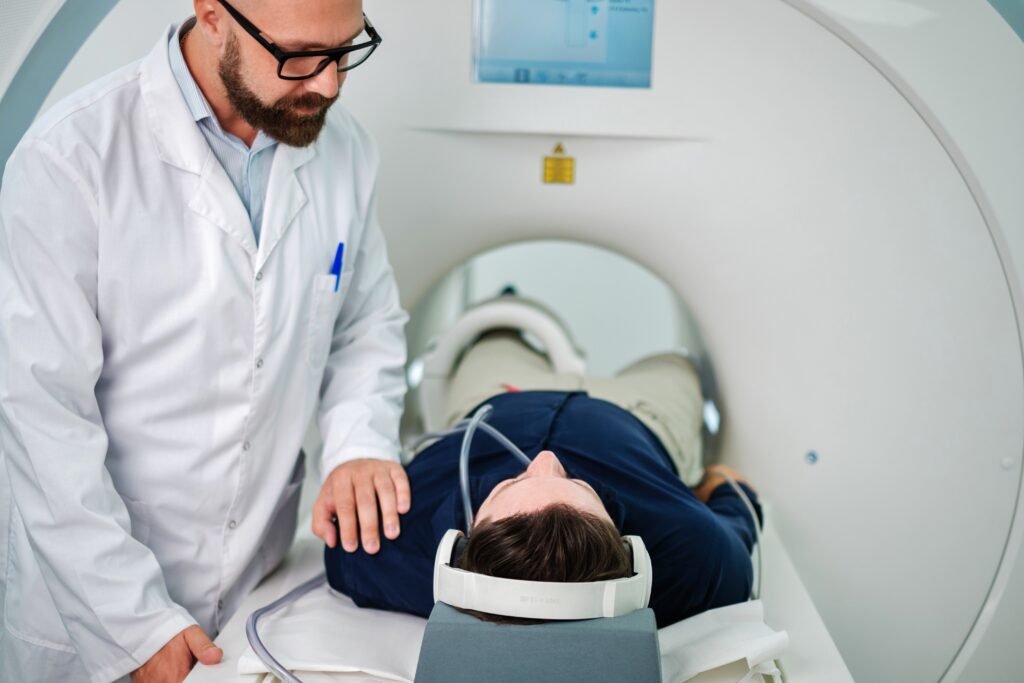Medical Hypnotherapy
Medical Hypnotherapy deals with physiological health issues, beyond those based on neurosis (but excluding psychosis). There can be a psychological component to them too, which can be addressed through hypnotherapy. It promotes deep relaxation and engages the subconscious mind to stimulate the body’s many natural healing processes.
I use guided hypnosis to support physical healing and help ease and manage certain health conditions. Always consult your GP before beginning hypnotherapy to ensure their diagnosis and treatment of any physiological medical conditions.


Headaches and Migraine
Hypnotherapy can be a practical approach for managing headaches and migraines by addressing both the physical and psychological aspects of pain. It helps calm the nervous system, lower stress levels (a major migraine trigger), and shift how the brain perceives pain; essentially ‘turning down the volume’ on discomfort.
It can also shorten the duration of migraine attacks, especially when individuals practice self-hypnosis techniques (which I will teach you) at the onset of symptoms.
Additionally, by promoting better sleep and uncovering emotional triggers like anxiety or unresolved stress, hypnotherapy explores root causes that may contribute to chronic headaches.
Sessions typically involve deep relaxation, imagery, and positive reinforcement aimed at reducing pain and improving overall wellbeing.
Controlling Pain
Acute pain typically lasts less than 3 to 6 months and is often associated with soft tissue injuries, such as sprains or burns. It serves as the body’s warning signal to take action. In contrast, chronic pain persists for more than six months and can continue well after the original injury or illness has resolved, or even without an identifiable cause (idiopathic pain).
Hypnotherapy can reduce pain by changing how the brain perceives and responds to it. It’s been shown to help with conditions like migraines, arthritis, fibromyalgia and pain from surgery or cancer.
Hypnosis is often more effective at relieving pain than drugs like codeine or morphine. Its key advantage is safety as it doesn’t cause side effects that impair judgement or motor skills, and it’s non-addictive.
Psychogenic pain stems from psychological causes, such as stress, trauma, guilt or anxiety, rather than physical injury or illness. It’s often due to unresolved emotional issues and can present as conditions like Broken Heart Syndrome (chest pains), back pain, migraines, bruxism (teeth grinding), bowel pain, and many, many more. Clients are often surprised at the emotional memories that underpin their pain perceptions around their body now.
Analytical Hypnotherapy is especially effective with this type of pain. By uncovering and addressing repressed emotions and damaging subconscious beliefs (e.g. “I don’t deserve to heal” or “pain keeps me safe”), it helps release the emotional roots of pain, allowing the body to release physical symptoms.




Overcoming Asthma
Hypnotherapy can support better breathing by helping individuals stay calm during asthma flare-ups and reducing anxiety linked to attacks. It also encourages healthy habits, such as proper medication use and avoiding triggers. When stress plays a role in breathing difficulties, hypnotherapy can ease emotional tension and improve overall respiratory comfort.
Research suggests that combining hypnotherapy with standard asthma treatment may reduce the frequency and severity of attacks, improve lung function, and lower medication use. It’s especially effective for children and teens, who often respond well to guided imagery and relaxation techniques. Hypnotherapy works alongside medical treatment — not as a replacement.
Better Diabetes (Type 2) Control
Hypnotherapy can support type 2 diabetes management by encouraging healthy habits and improving self-discipline. In a deeply relaxed state, the mind becomes more receptive to positive suggestions, making it easier to adopt better eating patterns (fewer carbs and sugary things), stay active (exercise), and stick to treatment routines; all key factors in controlling blood sugar levels.
It also helps reduce stress and emotional triggers like anxiety or overeating, which can disrupt glucose balance. By promoting calm and greater self-awareness, hypnotherapy can aid in stabilising blood sugar and improving overall wellbeing, alongside medical care.


Improving Sleep issues
Hypnotherapy can help improve sleep by calming the mind, easing anxiety, and promoting relaxation, key factors in falling and staying asleep. For those with insomnia, it can reduce overthinking at night and help build healthier sleep habits through guided suggestion and mental conditioning.
While it doesn’t treat the physical causes of sleep apnea, hypnotherapy may support better rest by lowering stress and encouraging consistency with treatments like CPAP use. As a natural, drug-free option, it offers a helpful complement to conventional sleep therapies.
Improving Irritable Bowel Disease (IBD) Symptoms
Inflammatory Bowel Disease (IBD) is a chronic condition marked by ongoing inflammation in the digestive tract. The two main forms are Crohn’s disease, which can affect any part of the gastrointestinal system, and ulcerative colitis, which affects the colon and rectum.
Hypnotherapy can aid in managing IBD by reducing stress and anxiety, common triggers for flare-ups. By calming the nervous system and promoting relaxation, it may help relieve pain, ease digestive discomfort, and support emotional wellbeing. While it doesn’t directly treat inflammation, it can improve resilience and help manage symptoms more effectively.


Lowering Autoimmune Disease Effects
Hypnotherapy can support the management of autoimmune conditions like rheumatoid arthritis, lupus (SLE), multiple sclerosis (MS), Celiac disease, and psoriasis by calming the stress response — a known trigger for flare-ups and inflammation. Through deep relaxation, it may help regulate stress hormones and promote a more balanced immune function.
It can also improve sleep, ease discomfort, and reduce mental fatigue, which are common challenges for those with autoimmune disorders. While not a direct treatment, hypnotherapy offers a gentle, complementary approach to enhance wellbeing and support symptom management.
Easing Skin Complaints
Hypnotherapy can support the management of skin conditions by addressing the emotional and psychological factors that often worsen symptoms. Stress is a common trigger for issues like eczema, psoriasis, acne, and hives, and hypnosis helps calm the nervous system, which may reduce flare-ups and discomfort.
It can also help break habits like skin picking or scratching, and improve self-esteem often affected by visible skin issues. While not a replacement for medical care, hypnotherapy works well alongside it to support overall skin health and healing.



Preparing for Surgery and Hospital Fears
Hypnotherapy can help ease pre-surgery anxiety, especially for those uncomfortable in hospital settings. It reduces stress, promotes calm, and helps individuals feel more emotionally prepared and confident about the procedure. It can also shift fears around anaesthesia, medical equipment, or the hospital environment by reframing them into feelings of safety and reassurance.
Hypnotherapy has been used to complement (and even replace) general anaesthesia during certain operations (ref: Dr John Butler, HTI, who is highly respected in this).
Under general anaesthesia, the conscious mind is suppressed; however, the subconscious remains listening (and sensing) to a fair degree, so what the surgeon says (‘bedside manner’) can influence the patient’s internal responses appreciably.
Similarly, in shock, such as from accidents, or in a coma state, what close relatives say can have an effect. Hypnosis in First Aid intervention is highly beneficial, esp. for burns, often speeding up the healing process, as studies have shown.
Many people who use hypnotherapy before surgery report better sleep, reduced tension, and a more peaceful mindset — all of which can support a smoother surgical experience and aid recovery.
Helping Other Conditions ..
- Hay fever (and other allergies) may sometimes be helped, and its severity reduced.
- Men’s health problems, such as Erectile Dysfunction, suicidal feelings, anger issues, road rage, porn addiction, alcoholism, etc.
- Menstrual pains (dysmenorrhea). Hypnotherapy can help alleviate the cramping pain in the lower abdomen or back.
- Helping those with Neurodiverse conditions – such as Autism (ASD), ADHD, Dyslexia, Dyspraxia, Tourette’s Syndrome, Tics – better manage and control their condition by raising their relaxation response, self-confidence, and exploring personalised coping/tolerance strategies.

